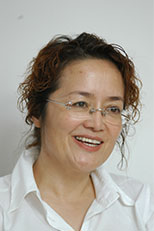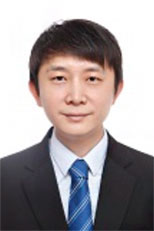-
Qin Chuan Director of the InstitutePathology and pathophysiology

Qin Chuan, a female MD and researcher, is the Director of the Institute of Laboratory Animal Sciences, Chinese Academy of Medical Sciences, expert of Medical Sciences and expert of special allowance by State Council. She received her doctorate in pathology and pathophysiology in 2006. She is mainly engaged in experimental pathology development, and has established a series of neurodegenerative disease models, China's largest resource bank of animal models of human diseases, Comparative Medical Technology Platform and National Platform for Animal Model of Infectious Diseases. In addition, she has been worked on the development of animal models of human diseases, the research of disease mechanism and the application of drug development models for a long time, and created the discipline of medical comparative medicine. The relevant representative research results were published in the journals of Nature Medcine, Nature Microbial, and Nature Communication, respectively. She published 283 papers as the first or corresponding author, 110 SCI papers of Nature Microbiol, Nature Med, and the like included, which were cited for 1595 times. She has obtained 10 authorized invention patents, and she was the editor-in-chief of 17 monographs and 5 textbooks, 3 industry training materials, training 81 graduate students and postdoctoral. She also leaded establishment of 152 standards and won 18 awards of science and technology (including the First National Innovation Top Prize, the third prize of National Prize for Progress in Science and Technology), achieving the honors of the National "March 8th" Red Banner, National Excellent Science and Technology Workers, etc.
-
Deng Wei Secretary of CPC CommitteePathology and pathophysiology

He has been engaged in teaching work for more than ten years. He is serious and responsible in his work, pays attention to teaching work, and actively engages in teaching reform of laboratory animal teaching method. In recent years, with the rapid development of information technology, big data, MOOC, etc., the learning mode has undergone fundamental changes. According to the characteristics of laboratory animal, the teaching form of MOOC + flipped classroom is proposed to push the teachers to make MOOC, change the teaching method, change the students' learning mode from passive learning mode to active learning mode, and use the method of fragment chemistry department to change the learning mode. At the same time, there are classroom links to guide students to carry out research-based learning, which cultivates students' critical thinking, builds an interactive and autonomous learning environment based on exploration and research, inspires students' interest in research and exploration, cultivates their awareness of inquiry-based learning, and improves the course challenge.
-
Liu Jiangning Deputy Director of the InstitutePathogen biology, Comparative Medicine

Liu Jiangning, a male Doctor, Deputy director and associate researcher, was born in December 1981 in Hebei Province. He received his bachelor degree from Hebei Normal University of Science and Technology in 2003 and his doctoral degree from China Agricultural University in 2008. He mainly engaged in the pathogenic biology and comparative medical research of enterovirus and hepatitis virus. The animal model of hand-foot-and-mouth pathogen EV71 virus was used to study the vaccine of EV71 virus and related drugs. Genetic diversity mice were used to study EV71 virus susceptibility genes. He carried out the work of WHV hepatitis model in groundhog to establish animal models of chronic and end-stage hepatitis. His two domestic patents and 1 international patent were applied, and important Antiviral research results have been published in the journals including Antiviral research, Phytomedicine and Vaccine.
Friday November 22nd,2024 You are the 1928611 Visitors

 WeChat
WeChat